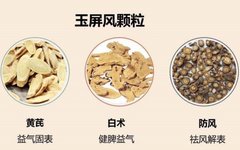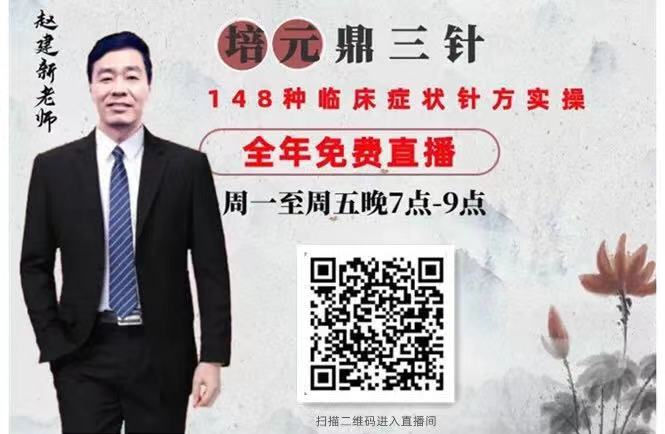
When visiting a TCM practitioner, you may often hear about Qi deficiency.
Qi deficiency can be categorized into Heart Qi deficiency, Spleen Qi deficiency, Lung Qi deficiency, and Kidney Qi deficiency. Today, I will introduce four Qi-boosting TCM formulas.
1. Yu Ping Feng Granules (玉屏风颗粒)
Yu Ping Feng Granules are suitable for individuals who frequently catch colds.
People who are prone to colds often have Lung Qi deficiency, which may also be due to Spleen Qi deficiency, but Yu Ping Feng Granules can address both.
There is a layer of Qi on the surface of the body called Wei Qi, which protects the body from external pathogens. Wei Qi is derived from the essence of food and is distributed throughout the body by the lungs. In individuals with Lung Qi deficiency, Wei Qi struggles to reach the surface, leaving the pores unprotected and open, allowing external wind and cold pathogens to invade, leading to common colds. Additionally, those with Lung Qi deficiency tend to sweat easily; even slight activity can cause excessive sweating.
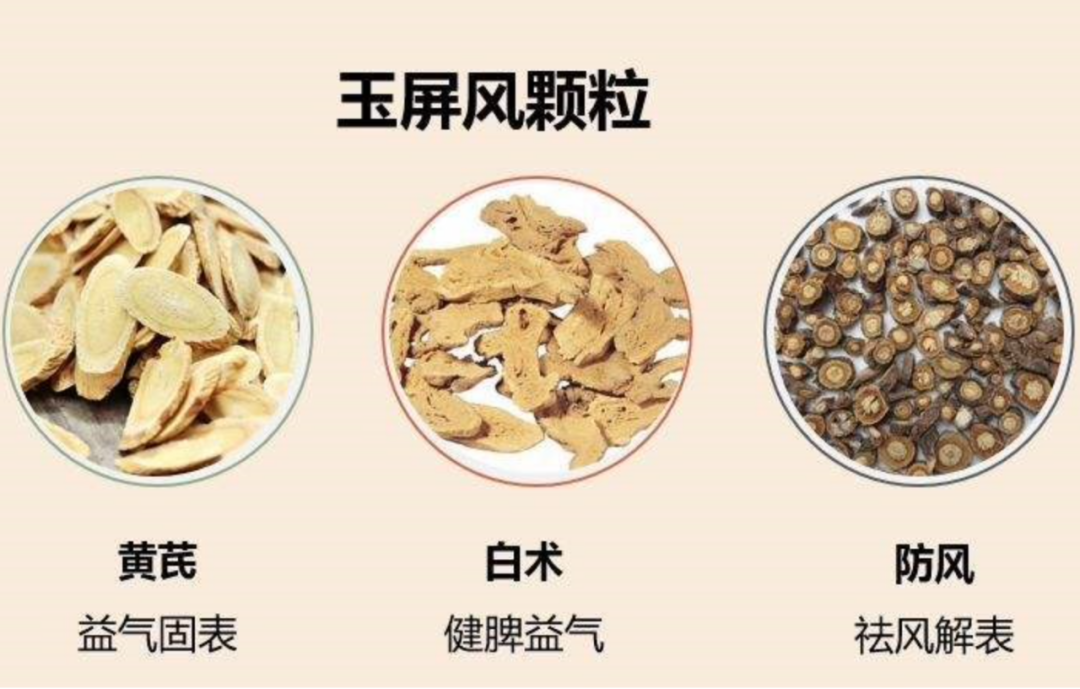
In Yu Ping Feng Granules, Fang Feng (防风) can dispel wind, while Huang Qi (黄芪) and Bai Zhu (白术) can tonify Spleen and Lung Qi, creating a defensive layer on the surface to prevent external wind and cold from entering while retaining internal fluids.
This formula should not be taken during a cold, as Huang Qi has a protective effect that closes the pores. Taking it after catching a cold is like closing the door to an intruder; at that point, one should release the exterior and open the pores to expel the pathogens.
Applicable Population: Those who frequently catch colds, experience spontaneous sweating, or are prone to allergies during seasonal changes, as it can help prevent these issues.
2. Bu Zhong Yi Qi Wan (补中益气丸)
“Zhong” refers to the Spleen and Stomach, and “Bu Zhong” means to tonify the Spleen and Stomach.
The main characteristic of Spleen Qi deficiency is lethargy. When the Spleen is weak, it affects the limbs, leading to fatigue and a lack of motivation, making one want to lean against something. Walking becomes sluggish.
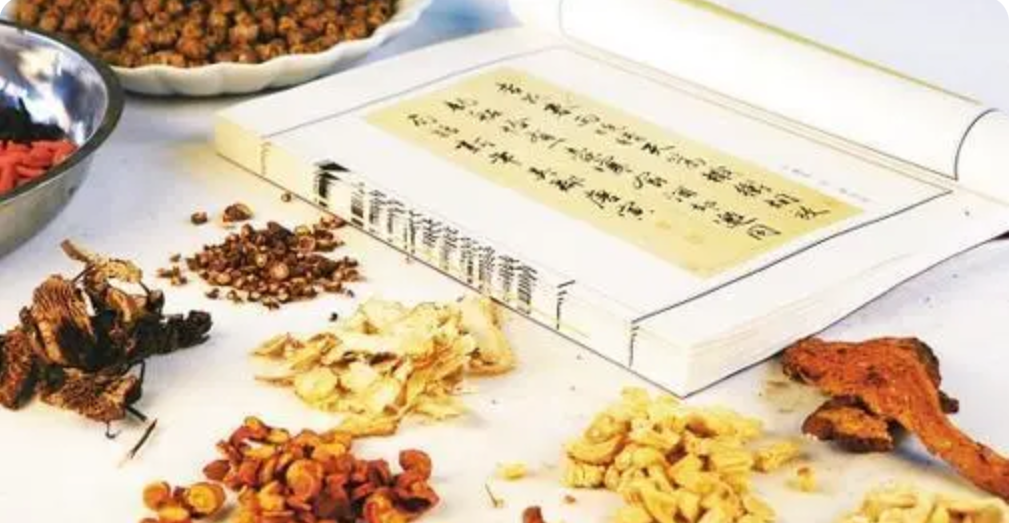
Individuals with Spleen Qi deficiency may experience abdominal distension and diarrhea. Abdominal distension occurs because the Spleen struggles to transform food, while diarrhea results from the inability to retain what has been ingested.
Severe Spleen Qi deficiency is referred to as Qi Sinking, which can lead to sagging of the facial muscles and internal organs. As one ages, facial muscles may become loose, while children have firm and plump muscles due to sufficient blood and Qi. When Qi is severely depleted, organs such as the stomach, uterus, and intestines may sag. The Huang Di Nei Jing states, “For those who sink, lift them up.” Bu Zhong Yi Qi Wan not only replenishes Qi but also lifts it.
Applicable Population: Those who are easily fatigued, speak weakly, experience abdominal distension or diarrhea after eating, or have prolapse of the rectum or internal organs.
3. Sheng Mai Yin (生脉饮)
Some people are lively in winter but feel extremely fatigued in summer, which is a typical sign of Heart Qi deficiency.
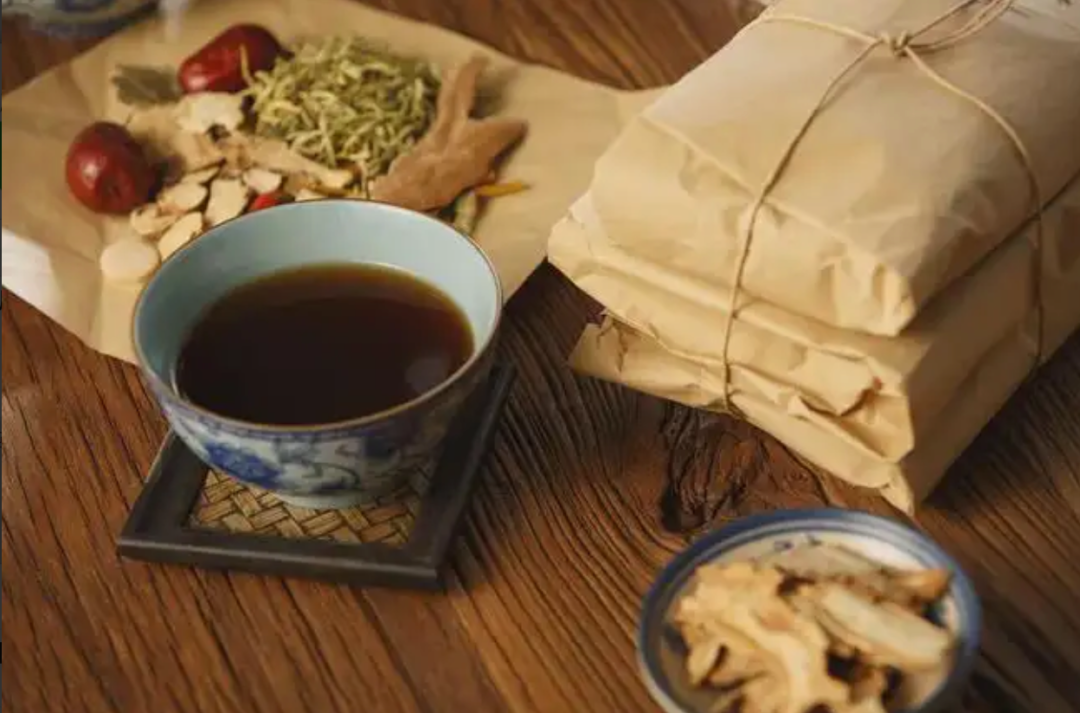
Summer heat is closely related to the heart and can exacerbate Heart Qi deficiency. In hot summer weather, excessive sweating occurs, and sweat is considered the fluid of the heart. Excessive sweating can deplete heart blood, leading to both Qi and Yin deficiency. When the heart lacks both Qi and blood, it can cause restlessness, and individuals with Heart Qi deficiency may experience palpitations and irregular heartbeats upon examination.
At this time, Sheng Mai Yin is particularly effective. Sheng Mai Yin can replenish both Qi and Yin; Ren Shen (人参) replenishes Qi, Mai Dong (麦冬) nourishes Yin, and Wu Wei Zi (五味子) helps retain the essence, preventing leakage and strengthening the heart’s pulse.
Applicable Population: Those with both Qi and Yin deficiency, especially in summer when they feel lethargic, sweat excessively, and experience dry mouth, palpitations, and shortness of breath.
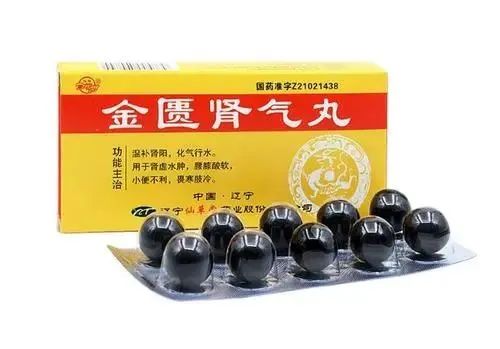
4. Jin Gui Shen Qi Wan (金匮肾气丸)
Jin Gui Shen Qi Wan primarily tonifies Kidney Qi. When thinking of Kidney deficiency, one may consider Kidney Yin deficiency or Kidney Yang deficiency. The most notable feature of Kidney Qi deficiency is shortness of breath or insufficient Qi. The kidneys are responsible for storage, and this function is primarily achieved through Kidney Qi. Individuals with Kidney Qi deficiency often experience symptoms of “leakage,” such as frequent urination, diarrhea, nocturnal emissions in men, and clear, copious vaginal discharge in women. The kidneys govern the bones, and those with Kidney Qi deficiency may feel weakness in the lower back and knees; they may also experience tinnitus, as the kidneys open to the ears. Additionally, those with Kidney Qi deficiency may experience significant hair loss.
The approach to tonifying Kidney Qi and Kidney Yang is generally similar. Kidney Yang deficiency often occurs on the basis of Kidney Qi deficiency, leading to symptoms of cold intolerance. The treatment involves using Liang Ge San (六味地黄丸) to nourish Yin and Gui Zhi (桂枝) and Fu Zi (附子) to tonify Yang. The dosage should be moderate to avoid exacerbating Qi deficiency symptoms. The combination of these approaches is reflected in Jin Gui Shen Qi Wan.
Applicable Population: Those who experience fatigue, shortness of breath, lower back pain, and tinnitus. If both Spleen and Kidney deficiencies are present, take Bu Zhong Yi Qi Wan in the morning and Jin Gui Shen Qi Wan in the evening. If experiencing heat, take with warm salt water before meals.


